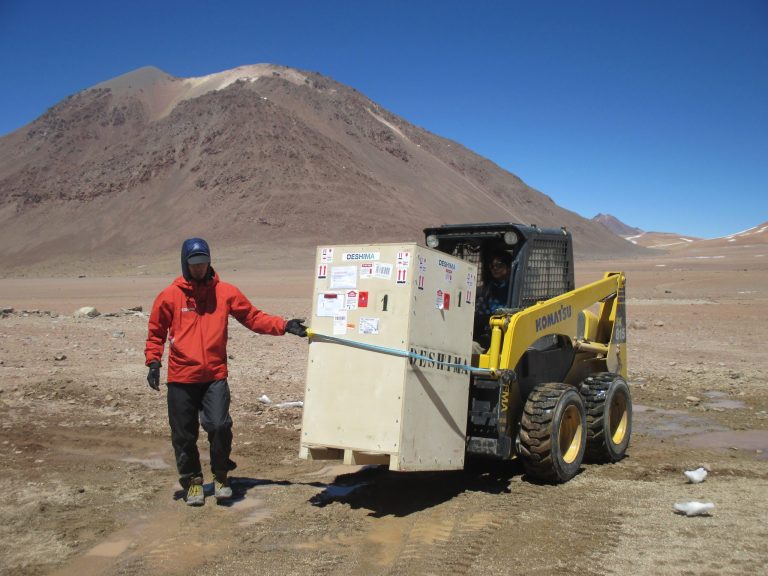DESHIMA is a spectrometer that sees light that has never been captured before. The light it captures has been travelling for 13 billion years to reach the earth. Last October, the spectrometer was installed in Chile and we were there to see if it worked.
Akira Endo and his team of thirty people, worked for eight years on this project. Last October, the time came: did the spectrometer work? Could it capture the light they wanted? And yes, it did both! “Normally, it is quite problematic to install something in telescopes,” says David Thoene, a DESHIMA team member. “But we had no problems at all. Even the people who had been working there for fifteen years were surprised that everything worked so fast and so perfectly.”
‘We are doing groundbreaking research’
DESHIMA is more efficient than other spectrometers. It is faster by a factor of 100 and the camera system is way more compact and can still capture a broad spectrum of infrared light. But why do we need to see star formations that existed just after the Big Bang? “This spectrometer allows us to do more measurements and get more knowledge about the universe. We are doing groundbreaking research. Just think, why should cavemen have made fire? It was dangerous and life threatening. But they did and look how far we’ve gotten by making fire.”
Endo and his team are working on other technical detector projects. For example, the AM Kid, an infrared camera that can take pictures of 24,000 pixels. Or the Mosaic, a camera that will be placed in the Large Millimetre Telescope in Mexico. They work together with SRON, the Netherlands Institute for Space Research that will soon come to Leiden.
DESHIMA is no longer in the telescope. What is going to happen with it? “It is now standing in a container next to the telescope,” says Thoene. “We are going to upgrade it and expect to place it in the telescope in 2019. It will be open for astronomers to use.”
 Transport of the crate with DESHIMA from the truck to the workplace, at 5000 meters altitude. (Photo’s: DESHIMA Team)
Transport of the crate with DESHIMA from the truck to the workplace, at 5000 meters altitude. (Photo’s: DESHIMA Team) Want to read more about the DESHIMA?
- New lab for developing astronomical instruments (25 July 2016)
- Knappe Koppen (Dutch, 17 November 2010)
TU Delft TV / TU Delft TV is a collaboration between Delta and the Science Centre. The crew consists of TU Delft students.


![[VIDEO] Deshima – Birth of the universe](https://delta.tudelft.nl/wp-content/uploads/2023/12/171222-DESHIMA.png)
Comments are closed.